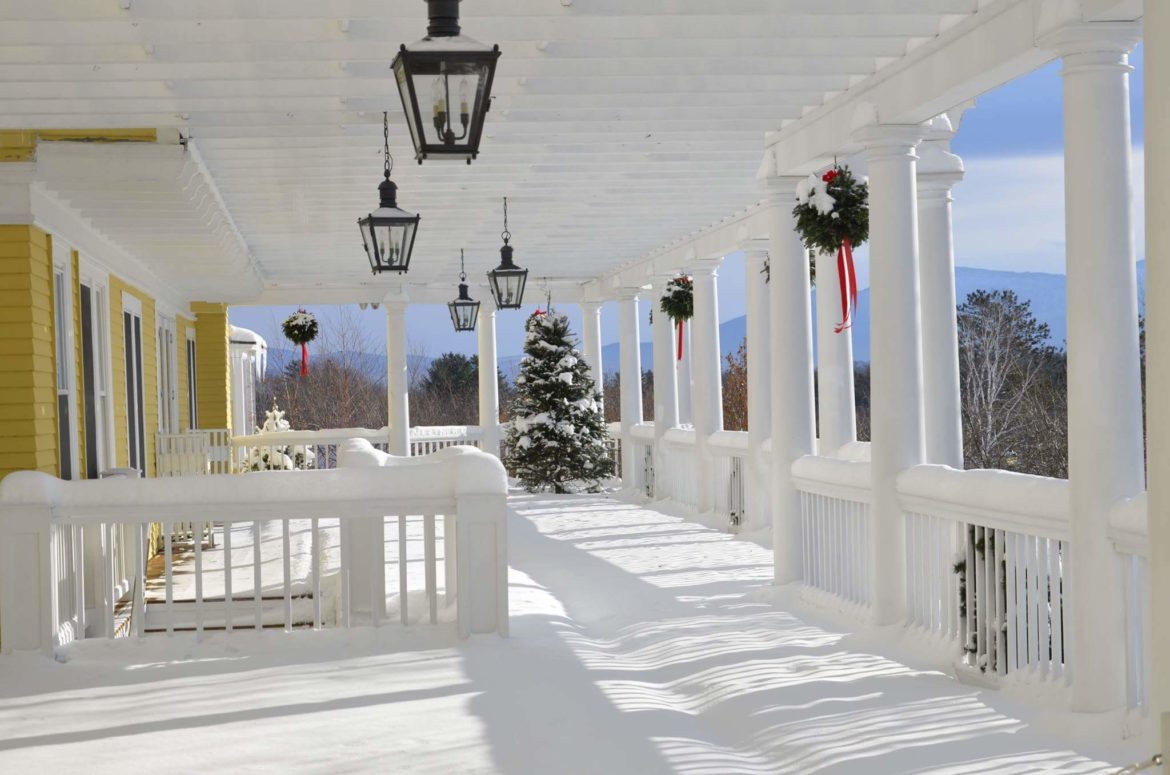By MARK OKRANT, NH Travel Guru
With the Christmas holiday and winter tourism season upon us, this seems like a good time to discuss the evolution of travel accommodations.
The phenomenon of leisure travel from one’s place of residence predates written records. Centuries later, wealthy citizens of ancient civilizations, such as the Greeks and Romans, engaged in spa visits that necessitated lengthy trips away from home.

Mark Okrant, the NH Travel Guru
During the early Middle Ages, monasteries and abbeys accommodated individual and group travelers. By 1200, the inn, tavern, and l’auberge had appeared on the travel landscape.
Creation of the United States at the end of the eighteenth century necessitated establishing places to accommodate growing legions of traveling politicians and businesspersons. Taverns and farmhouses sheltered travelers along byways, while urban hotels and guesthouses served their needs upon arrival at central places.
With establishment of the railroad system, affluent elements of American society were provided with a means to visit cooler locations wherein to escape the hot summer months. While some headed to the seashore, many elected to seek relief in places offering greater altitude. People from Boston, New York, Philadelphia, Washington, and Chicago soon made annual treks to waiting hotels in the Poconos, Catskills, Berkshires, and our own White Mountains.
As demand for these venues increased, the scale of the accommodations grew in response. By the first decade of the twentieth century, more than twenty grand resort hotels were being operated in the White Mountains region alone. To qualify as ‘grand’ necessitated that the property be capable of accommodating a minimum of 200 guests per night.
According to one observer of the day, these properties were akin to ‘small cities’, with staffs that approximated the size of their guest lists and provided a wide array of services. Guests traveled to grand hotels by rail, arriving at one of numerous train stations that dotted the regional landscape. Here, the extended family, their servants, and substantial quantities of luggage disembarked. From the train stations, everyone and everything were conveyed to the resort properties in horse-drawn carriages—thus the term ‘carriage trade’ is applied to this day, to describe properties that serve affluent guests.
Upon arrival at a grand resort hotel, the guests’ every need was looked after. Major resorts of the day—the Balsams, Mountain View Grand, Crawford House, Profile House, and their sister properties—provided a Full American Plan experience. This meant that paying guests received their room, three meals daily, possibly including alcoholic and non-alcoholic beverages, as well as a full set of services and resort amenities, all for one fixed price. To this writer’s knowledge, the last grand resort property in New Hampshire to offer Full American Plan service to its guests was The Balsams, before closing its doors in September of 2011.
Today, if a traveler wishes to partake in a similar array of services, she or he must seek out an all-inclusive resort, or take a cruise. The eco-tourists among us have a problem with each of these two alternatives. The grand hotels made it possible to experience the surrounding cultural and natural ambiance without doing permanent damage.
However, when one walks up the gangplank of a cruise ship or enters through the gates of an all-inclusive, opportunities to mingle with one’s surroundings are strictly controlled by people called recreation directors, and details called insurance liability. Therefore, no Allocentric traveler (def. an adventurer; one who strives to discover new, untapped areas, and enjoys feeling like a “discoverer”) wants any part of such travel.
In next week’s NH Travel Guru column, we will continue to examine the evolution of lodging accommodations within New Hampshire.
After forty years as an educator, researcher, and consultant, Mark Okrant joined IndepthNH.org to offer concise, informative insight into New Hampshire’s travel and tourism industry as a business, while showcasing the people and places you want to know. This guy’s really been around. And, he’s funny, too.
For more about Mark’s compelling tourism-based murder mystery series, visit www.markokrant.com.
For information on current things to do in New Hampshire, go to:
http://www.visitnh.gov/what-to-do/event-calendar.aspx





